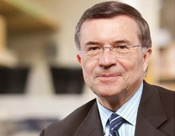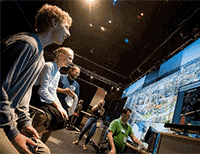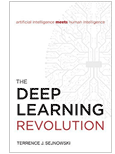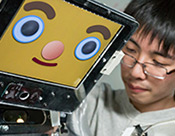The Temporal Dynamics of Learning Center or "TDLC" is a National Science Foundation-funded Science of Learning Center that has enjoyed over a decade of success. TDLC aims to achieve an integrated understanding of the role of time and timing in learning, across multiple scales, brain systems, and social systems. The scientific goal of the center has been to understand how the element of time and timing is critical for learning, and to apply this understanding to improve educational practice.
Our Vision is to significantly advance the science of learning
by establishing a pipeline from basic science to scalable tools for enhanced learning, which will have measurable, substantial,
and lasting impact on the next generation of education, machine learning, artificial intelligence and health.
Latest News:
- Upcoming Global Science of Learning Education Network (GSoLEN) event -
Lessons for How People Learn: Opportunities and Imperatives in a Post-COVID World
Time: 8:30 am EST Time (East Coast U.S.) and 9:30 pm Hong Kong Time. More info
- Dr. John Iversen will participate in Sound Health Network Launch Event (1/26/21) which explores music and health
- Closer to Truth: How Do Brains Make Music?
Click here to watch this PBS series on music and the brain. Listen to interviews with TDLC's John Iversen, along with Mark Tramo, Diana Deutsch, and Elizabeth Margulis. For four other interviews (including Can Music Probe Mentality? And Can the Mind Heal the Body?), click here.
- TDLC's Dr. Sejnowski in Salk news: Computational model reveals how the brain manages short-term memories (12/17/20) and Teaching Artificial Intelligence to Adapt (12/16/20).
- Recent Event: Global Connections Between COVID, Poverty, and Science of Learning (August 27, 2020)
Presenter: Sebastian J. Lipina, Ph.D. Moderators: Andrea A Chiba, Ph.D., and Hon. Bob Wise. More info
- How the science of learning can assist teacher preparation and development in this turbulent time (June 18, 2020)
Cohosting videoconference with UNESCO and International Mind, Brain, and Education Society (IMBES). More info
- Recent event: Virtual Conference: Global Science of Learning in this time of great education and economic upheaval (May 1, 2020)
Click here to view some of the conference materials.
- Dr. Terry Sejnowski featured in New York Times article: "The Machines Are Learning, and So Are the Students" (12/18/19) More

- Team led by INC PI John Iversen awarded an inaugural NIH Sound Health grant (9/19)
The NIH has for the first time committed 20 million over five years to study the various ways in which music impacts health and development. More
 Can video games help kids with autism and ADHD? This San Diego startup makes its case (The San Diego U-T, 5/3/19)
Can video games help kids with autism and ADHD? This San Diego startup makes its case (The San Diego U-T, 5/3/19)
Dr. Jeanne Townsend and Dr. Leanne Chukoskie (a former TDLC scientist at UC San Diego) saw the need to take research findings about attention and to translate them into effective, affordable and readily available interventions. Through their new company, BrainLeap Technologies, they have created interventions in the form of fun games, aimed at improving attention. More
- UC San Diego named a 2019 National Endowment for the Arts (NEA) Research Lab on "The Arts, Creativity, Cognition, and Learning" (3/5/19)
UC San Diego PIs Drs. John Iversen, Tim Brown, and Terry Jernigan, in partnership with San Diego Children’s Choir and Vista Unified School District, will study the potential effects of musical interventions on early childhood development. They will conduct the Early Academic Readiness and Learning Intervention - longitudinal intervention trials of vocal music in pre-school aged children, testing if music has impact on school readiness, cognition, and emotion. More
- Stem Cell–Derived Neurons from People with Autism Grow Differently
Changes in gene expression also hint at how the brains of people with ASD develop differently from those of other people. (The Scientist, 1/11/19)
TDLC investigator Rusty Gage is coauthor of the study. More

- A pioneering scientist explains ‘deep learning’
Dr. Terry Sejnowski discusses his new book, The Deep Learning Revolution, as well as the field of deep learning in general. He argues that "the hype about killer AI or robots making us obsolete ignores exciting possibilities happening in the fields of computer science and neuroscience, and what can happen when artificial intelligence meets human intelligence." Read what he has to say in this fascinating interview! (The Verge, 10/16/18)
(The Verge, 10/16/18)

- Tapping Untapped Talent: Internship program taps into the talents of autistic youth (UC San Diego, 10/11/18)
A new internship program at UC San Diego taps into the talents of autistic youth to develop therapeutic video games based on TDLC research. Dr. Leanne Chukoskie, a former TDLC scientist at UC San Diego, designed a paid summer internship program for people with Autism Spectrum Disorder (ASD). With support from the San Diego Foundation and the Legler Benbough Foundation, she established the program through the Power of Neurogaming Center (PoNG) at UC San Diego’s Qualcomm Institute. The eight-week program is mutually beneficial - Dr. Chukoskie gains the students’ coding talent, and interns improve their social skills by working in creative groups and making professional connections. More (Photos by Erik Jepsen/UC San Diego Publications)
(Photos by Erik Jepsen/UC San Diego Publications)
 The Deep Learning Revolution by Dr. Terrence J. Sejnowski
The Deep Learning Revolution by Dr. Terrence J. Sejnowski
In his recently released book, The Deep Learning Revolution (Oct 2018), TDLC Co-Director Dr. Terrence Sejnowski describes the way deep learning is changing our lives and transforming our economy. Dr. Sejnowski devotes one chapter to his research through the Temporal Dynamics of Learning Center (TDLC). TDLC emphasizes machine learning and brain learning, two areas that are converging. Examples of research by TDLC include the automatic recognition of facial expressions, social robots for classrooms, and learning how to learn. These advances are being supercharged with deep learning and could soon lead to personalized tutors.
- Exploring Human-Robot Interaction (UC San Diego)
RUBI (Robot Using Bayesian Inference), "the brain child" of former TDLC investigator Javier Movellan, has joined the lab of Andrea Chiba! RUBI continues to visit UC San Diego’s Early Childhood Education Center with TDLC's Deborah Forster to help to teach the preschoolers letters, numbers and fun songs. RUBI also helps the Chiba lab learn more about human-robot interaction and how robots can be useful. Read more
San Diego’s Early Childhood Education Center with TDLC's Deborah Forster to help to teach the preschoolers letters, numbers and fun songs. RUBI also helps the Chiba lab learn more about human-robot interaction and how robots can be useful. Read more
(Photo: Andy Thai works with RUBI. Credit: Terri Rippee).
- Learning Is a Complex and Active Process That Occurs Throughout the Life Span, New Report Says
(The National Academies of Sciences, Engineering, and Medicine News, 10/4/18)
A new report from the National Academies of Sciences, Engineering, and Medicine highlights the dynamic process of learning throughout the life span. The report, entitled How People Learn II, also identifies areas in which more research is needed to have an even deeper understanding of human learning. TDLC investigator Dr. Zewelanji Serpell participated on the report committee. Read more



